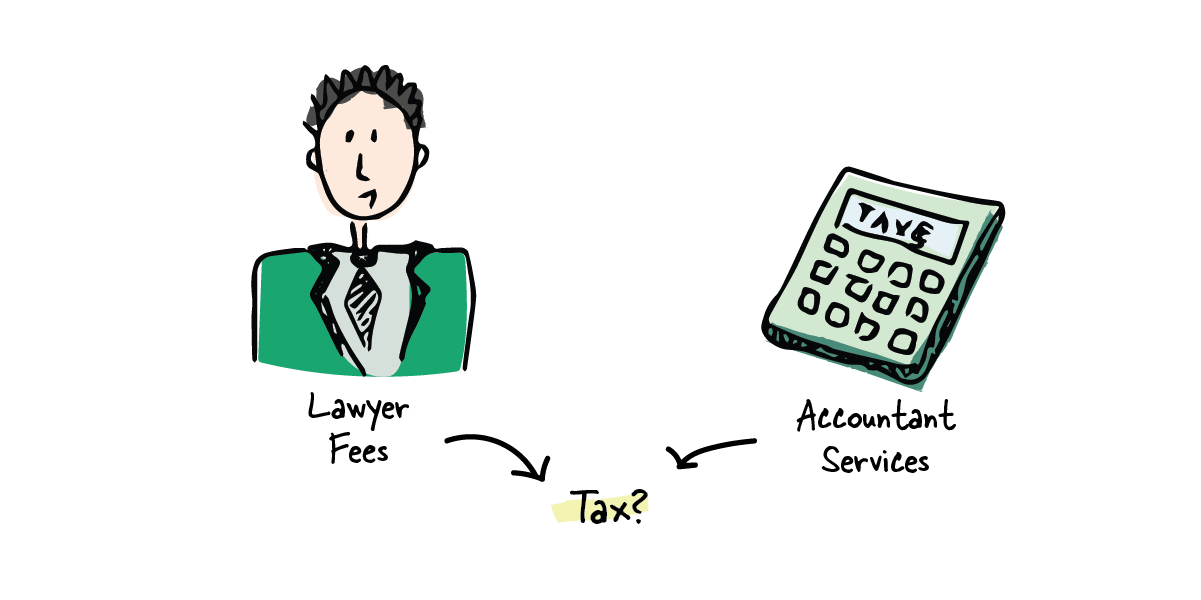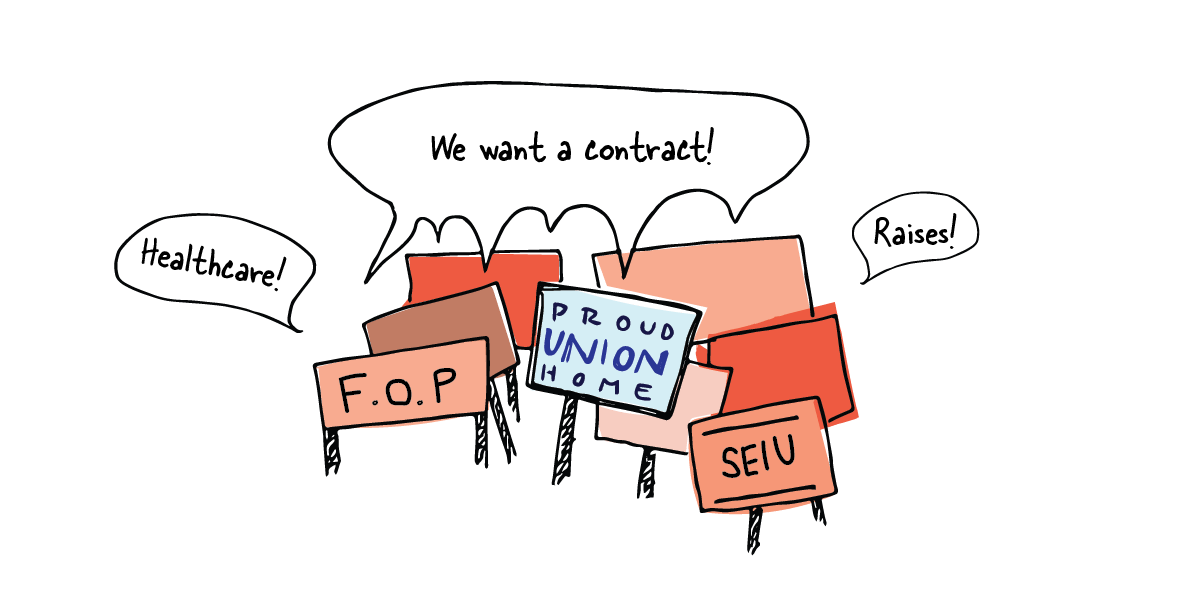Your Illustrated Guide To Chicago’s Budget Problems
By Becky Vevea, Paula Friedrich

Your Illustrated Guide To Chicago’s Budget Problems
By Becky Vevea, Paula FriedrichBrace yourself, Chicago.
On Thursday, Mayor Lori Lightfoot will deliver a prime-time “State of the City” speech that will kick off the Chicago’s months-long 2020 budget process. And it looks to be another rough one.
No one knows exactly what the deficit is just yet, but estimates range from $500 million to north of $700 million to more than $1 billion. The mayor herself hasn’t revealed how big the gap is, but is expected to Thursday night. Either way, the financial picture is still not pretty, despite a litany of taxes – and some new ones the mayor is considering. Here are some key terms to understand as Chicago’s budget season gets underway - and be sure to listen to the speech live on WBEZ 91.5FM at 6 p.m. on Thursday.
Property Tax Levy

Chicago government gets the largest single portion of its money from taxes paid by homeowners and anyone who owns property in the city. If property taxes are the city’s salary, increasing the property tax levy is the city’s way of getting a raise. Every year, city officials can ask for more money for government services, and elected representatives can say yes or no. (In 2015, Chicago alderman made the unpopular decision to approve four years of increases.) Lightfoot campaigned against raising property taxes, and has vowed to cut the budget before raising this tax again.
Pension Obligations

Speaking of growing bills, the City of Chicago in 2020 will have to come up with about $280 million more than it did last year to pay into its pension funds. Right now, the accounts that pay benefits to more than 118,000 city workers and retirees are projected to be about $28 billion short. This is the city’s “unfunded pension liability.” In order to start catching up after decades of underfunding, the city must make ever-rising pension contributions that are crowding out other government priorities.
Real Estate Transfer Tax

If you buy a home in Chicago, this is a one-time tax you pay when the sale goes through. The current rate set by the city is $3.75 on every $500 of the purchase price. (So if you buy a $250,000 home, you pay the City of Chicago $1,875 at closing.) But last year, affordable housing advocates suggested increasing the rate on homes over $1 million to help reduce homelessness. On the campaign trail, Lightfoot said she supported that idea. But as she stares down the city’s gaping budget hole, the mayor may instead put new revenue like this toward closing the deficit.
Structural Deficit

A structural deficit is when your bills consistently cost more than your paycheck. In other words, you’re living beyond your means – even if your salary goes up. Chicago has done this for decades, through economies both weak and strong. According to the most recent annual financial analysis, city officials have chipped away at the problem. But the balance sheet for 2020 is still projected to be in the red. On Thursday, Lightfoot is expected to reveal how big she thinks the deficit is and how she plans to help close it.
Recreational Marijuana Tax

Illinois recently voted to legalize recreational pot, starting next year. The law passed by the state legislature allows cities and towns to tax the sale of weed to make money. Chicago can impose a tax of up to 3% on all recreational marijuana sales. It’s not clear whether Lightfoot will go after the full 3% tax or something smaller. It’s also not clear how quickly Chicago – or any town in Illinois – might see that tax money flowing in because Illinois’ recreational marijuana industry is just getting started.
Debt Service

Chicago has a lot of outstanding IOUs. In fact, if the city spread all its debt out across every Chicago resident, each one would owe about $3,100, according to the most recent Comprehensive Annual Financial Report. “Debt service” refers to the payments the city has to make to investors and people who lent it money for things like new libraries, road construction and airport renovations. Think of it as Chicago’s credit card bills, mortgage, and car loan payments. Next year, the city’s debt service is expected to top $647 million.
Professional Services Tax

The state of Illinois does not tax services, like when you get a haircut or use an accountant. Lightfoot wants the state legislature to allow Chicago to start taxing some of these services - in particular, high-end professional services such as legal work and accounting. Josh Ellis, vice president of the Metropolitan Planning Council, put it this way: “You go to Jewel and you buy toothpaste, toilet paper, and apples and you pay sales tax on those items. Here you’re paying for three hours of a lawyer’s time, and you pay a service tax on that.” Ellis said tapping this revenue stream is long overdue because Chicago’s economy is increasingly service-based.
Collective Bargaining Agreements

The City of Chicago has 43 different collective bargaining agreements with various unions representing public workers. All of these outline city workers’ pay and working conditions. Six are up for renewal and are in active negotiations. Any pay hikes agreed to in the final contract deals will need to be accounted for in the budget. With some of the largest contracts – for police and firefighters – still under negotiation, the city will have to leave a pretty large question mark in the middle of next year’s budget.
Legal Settlements

Every year, people sue the City of Chicago. At any given time, the city’s lawyers are dealing with hundreds of cases - from small claims to high-profile police misconduct suits, such as the one following Laquan McDonald’s killing. When the city loses or settles a case, the City Council has to approve any payouts. That’s hard to budget for because the cases often take years and the amounts vary widely. For example, in 2018 the city budgeted nearly $47 million, but paid out nearly triple that in legal settlements and fees. Lightfoot will have to figure out how to estimate that number as she wrestles with a big deficit.
Bond rating

Think of this as a city’s credit score. It’s a label that signals to lenders how reliable the city is in paying back the money it borrows. And spoiler: Chicago’s bond ratings are not great. While it’s normal for cities to borrow money to build stuff, like an airport or a new library, Chicago has also taken out loans to cover general expenses. Too much borrowing can hurt a city’s bond rating in the same way running up a credit card bill can lower a person’s credit score: It becomes more expensive to borrow later.
Correction: Due to an editing error, an earlier version of this story contained the wrong day for Lightfoot’s budget address. The story has been updated to give the correct day.
Becky Vevea covers city politics for WBEZ. Follow her on Twitter at @beckyvevea. Paula Friedrich is WBEZ’s interactive producer. You can follow her at @pauliebe.
